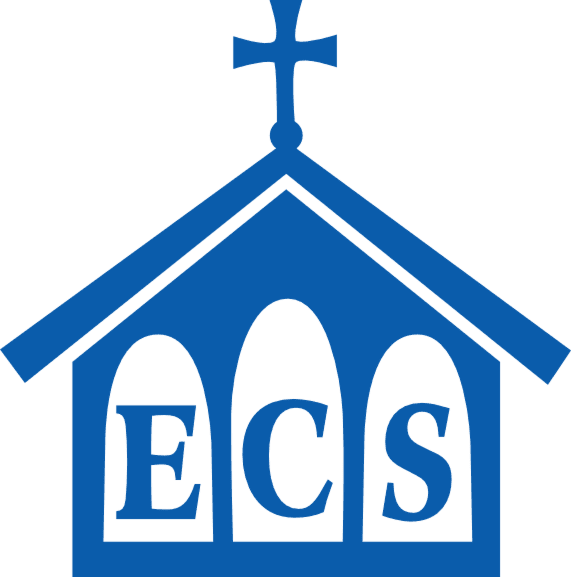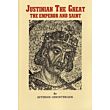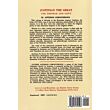Justinian The Great, the Emperor and Saint
By Asterios Gerostergios
Justinian The Great, the Emperor and Saint: Illustrious Byzantine Emperor, Legislator and Codifier of Law, profound Theologian, remarkable Author, and great Defender of the Orthodox Christian Faith, exemplary Philanthropist, Founder of Hagia Sophia at Constantinople, other magnificent churches and the Monastery of St. Catherine on Mount Sinai, Supporter and Organizer of Monasticism, and a Saint of the Orthodox Church.
Publication Data: Belmont, MA: Institute for Byzantine and Modern Greek Studies, 2004
Format: softcover
Number of Pages: 312
Dimensions (l × w × h): 23.0 cm × 15.4 cm × 2.1 cm
Additional Information: black-and-white illustrations
ISBN: 0‒914744‒59‒3
By Asterios Gerostergios
“This important treatise is the first work that undertakes to relate in a systematic and thorough manner the religious policy of the great Byzantine emperor Justinian I to his religious beliefs. Basing himself primarily on the theological writings, letters, and religious legislative work of Justinian, as well as on the works of his contemporaries, and secondarily on the studies of past and contemporary writers dealing with the Justinian era—Greek, Latin, English, German, Italian, French—Rev. Dr. Asterios Gerostergios succeeds in this endeavor to an eminent degree. In a scholarly, clear and incisive manner, he shows the nature of Justinian’s religious policy and of his religious beliefs, and the close relationship between his religious policy and his religious beliefs in its many aspects.”
—“PREFACE”
CONTENTS
PREFACE
ACKNOWLEDGMENTS
LIST OF ILLUSTRATIONS
I. INTRODUCTION
II. JUSTINIAN IN HIS TIME
1. The Setting
i. Political Situation c. 518 A.D.
ii. Religious Situation c. 518 A.D.
2. Justinian the Great
III. JUSTINIAN AS AUTHOR AND THEOLOGIAN
1. Justinian’s Writings
I. THEOLOGICAL WRITINGS
II. LETTERS
III. DECREES
2. The Problem of Orthodoxy in the Sixth Century
3. Justinian’s Credo, as revealed in his Writings
i. God-Father
ii. God-Son
iii. Holy Spirit
iv. The Holy Virgin Mary
v. The Church
vi. Holy Writ and Sacred Tradition
vii. Man and the Last Judgment
viii. Concluding Remarks
IV. JUSTINIAN AND THE NON-CHRISTIANS
1. Justinian’s Alleged Intolerance in General
2. Decrees against the Heathen
3. Decrees against the Jews
4. Decrees against the Samaritans
5. Decrees against the Manichaeans
V. JUSTINIAN AND THE CHRISTIAN HERETICS
1. Justinian’s position concerning the problem of the relationship between Church and State
2. The Akakian Schism
3. Monophysites
A. First period 518-536: The “suffered in the flesh” controversy
B. Second Period 536-553: The “Three Chapters” controversy
i. First Decree against the “Three Chapters”
ii. Reaction in the East
iii. Reaction in the West
iv. The Fifth Ecumenical Synod
C. Third period 553-565: The Aphthartodocetistic controversy
i. The recognition of the Synod by Pope Vigilius
ii. Justinian’s Endeavors for the Recognition of the Synod
iii. Justinian’s Alleged Aphthartodocetism
VI. JUSTINIAN AND THE ORTHODOX CHURCH
1. Decrees relating to Church Institutions
i. Bishops
ii. The Governmental System of the Church
A. The Provincial Synods
B. The Ecumenical Synods
C. The Position of the Five Patriarchs in the Ecclesiastical Organization
iii. Presbyters and Deacons
iv. Monks and Monastic Institutions
2. Philanthropic Work
3. Justinian’s Memory in the Church
VII. SUMMARY AND CONCLUSIONS
ABBREVIATIONS
BIBLIOGRAPHY
NOTES
INDEX
Publication Data: Belmont, MA: Institute for Byzantine and Modern Greek Studies, 2004
Format: softcover
Number of Pages: 312
Dimensions (l × w × h): 23.0 cm × 15.4 cm × 2.1 cm
Additional Information: black-and-white illustrations
ISBN: 0‒914744‒59‒3
By Asterios Gerostergios
“This important treatise is the first work that undertakes to relate in a systematic and thorough manner the religious policy of the great Byzantine emperor Justinian I to his religious beliefs. Basing himself primarily on the theological writings, letters, and religious legislative work of Justinian, as well as on the works of his contemporaries, and secondarily on the studies of past and contemporary writers dealing with the Justinian era—Greek, Latin, English, German, Italian, French—Rev. Dr. Asterios Gerostergios succeeds in this endeavor to an eminent degree. In a scholarly, clear and incisive manner, he shows the nature of Justinian’s religious policy and of his religious beliefs, and the close relationship between his religious policy and his religious beliefs in its many aspects.”
—“PREFACE”
CONTENTS
PREFACE
ACKNOWLEDGMENTS
LIST OF ILLUSTRATIONS
I. INTRODUCTION
II. JUSTINIAN IN HIS TIME
1. The Setting
i. Political Situation c. 518 A.D.
ii. Religious Situation c. 518 A.D.
2. Justinian the Great
III. JUSTINIAN AS AUTHOR AND THEOLOGIAN
1. Justinian’s Writings
I. THEOLOGICAL WRITINGS
II. LETTERS
III. DECREES
2. The Problem of Orthodoxy in the Sixth Century
3. Justinian’s Credo, as revealed in his Writings
i. God-Father
ii. God-Son
iii. Holy Spirit
iv. The Holy Virgin Mary
v. The Church
vi. Holy Writ and Sacred Tradition
vii. Man and the Last Judgment
viii. Concluding Remarks
IV. JUSTINIAN AND THE NON-CHRISTIANS
1. Justinian’s Alleged Intolerance in General
2. Decrees against the Heathen
3. Decrees against the Jews
4. Decrees against the Samaritans
5. Decrees against the Manichaeans
V. JUSTINIAN AND THE CHRISTIAN HERETICS
1. Justinian’s position concerning the problem of the relationship between Church and State
2. The Akakian Schism
3. Monophysites
A. First period 518-536: The “suffered in the flesh” controversy
B. Second Period 536-553: The “Three Chapters” controversy
i. First Decree against the “Three Chapters”
ii. Reaction in the East
iii. Reaction in the West
iv. The Fifth Ecumenical Synod
C. Third period 553-565: The Aphthartodocetistic controversy
i. The recognition of the Synod by Pope Vigilius
ii. Justinian’s Endeavors for the Recognition of the Synod
iii. Justinian’s Alleged Aphthartodocetism
VI. JUSTINIAN AND THE ORTHODOX CHURCH
1. Decrees relating to Church Institutions
i. Bishops
ii. The Governmental System of the Church
A. The Provincial Synods
B. The Ecumenical Synods
C. The Position of the Five Patriarchs in the Ecclesiastical Organization
iii. Presbyters and Deacons
iv. Monks and Monastic Institutions
2. Philanthropic Work
3. Justinian’s Memory in the Church
VII. SUMMARY AND CONCLUSIONS
ABBREVIATIONS
BIBLIOGRAPHY
NOTES
INDEX
Write Your Own Review






